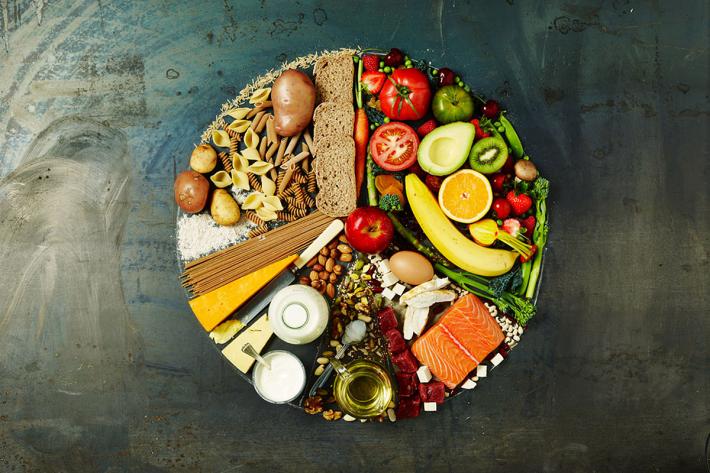Clinical Value of Nutritional Status in Cancer: What is its Impact and how it Affects Disease Progression and Prognosis?

Clinical Value of Nutritional Status in Cancer: What is its Impact and how it Affects Disease Progression and Prognosis?
Maria Mantzorou, Antonios Koutelidakis, Stamatios Theocharis & Constantinos Giaginis
Pages 1-26 | Received 27 Dec 2016, Accepted 06 Jul 2017, Published online: 30 Oct 2017
Introduction: Malnutrition is a usual finding in cancer patients, which may affect the progress of their disease and survival. Several nutritional screening tools have currently been applied to evaluate the nutritional status of cancer patients, with conflicting efficiency though.
Aim: This study aims to critically summarize and evaluate the existing clinical data so far regarding the potential prognostic role of nutritional status, as assessed by different nutritional screening tools and related biochemical indices in cancer patients.
Materials/Methods: PubMed database was comprehensively searched by the use of various relative keywords in order to identify clinical trials investigating the prognostic role of nutritional status in cancer patients.
Results: Prognostic Nutritional Index (PNI) seems to be a significant, independent prognostic factor for patients’ survival in most cancer types. Pre-operative serum albumin was also correlated with worse outcomes and was identified as an independent prognostic factor in several cancer types. Body mass index (BMI) was also well-studied, however, with contradictory impact among the different cancer types. Although lower BMI was identified as an independent prognostic factor of shorter patients’ survival in some cancer types, in others it did not exert any impact on patients’ survival.
Conclusions: This study supports evidence that nutritional status exerts significant prognostic impact in disease progression and survival of cancer patients. Further, good-quality, well-designed, prospective studies are recommended in order to draw firm conclusions on the prognostic role of specific nutritional status tools, and related biochemical indices, especially in liver, breast and prostate cancer, as well as hematological malignancies.
You can find the article here.
Διατροφή και ψυχική υγεία: Μπορούμε να επηρεάσουμε την ψυχολογική μας κατάσταση μέσω της διατροφής;

Όταν μιλάμε για διατροφή και ψυχική υγεία, στο μυαλό μας έρχονται συνήθως οι διατροφικές διαταραχές. Οι διατροφικές μας επιλογές όμως φαίνεται να σχετίζονται με την ψυχολογική μας κατάσταση, πέρα από τις ψυχογενείς διατροφικές διαταραχές. Τα τελευταία χρόνια, μάλιστα, τα επιστημονικά δεδομένα που υποδεικνύουν ότι η διατροφή επηρεάζει τόσο τη σωματική όσο και τη ψυχική υγεία έχουν αυξηθεί. Ελλείψεις θρεπτικών συστατικών, η ποιότητα της διατροφής που ακολουθούμε, καθώς και η μικροχλωρίδα του εντέρου μελετώνται αυτή την περίοδο πιο πολύ και σε βάθος, με τα αρχικά αποτελέσματα να είναι ιδιαίτερα εντυπωσιακά!
Η έρευνα δείχνει ότι διατροφικοί παράγοντες που ενδέχεται να διαμορφώνουν βιοδείκτες που σχετίζονται με την κατάθλιψη, διέπουν και την παχυσαρκία και τον σακχαρώδη διαβήτη. Πρόσφατες μελέτες δείχνουν ότι μεσολαβητές ενεργειακής ομοιόστασης και διάθεσης συνδέουν τον γαστρεντερικό σωλήνα με τον εγκέφαλο.
Η υγιεινή διατροφή, με τρόφιμα όπως το ελαιόλαδο, τα ψάρια, τα φρούτα, τα λαχανικά και οι ξηροί καρποί, τα όσπρια, τα πουλερικά, τα γαλακτοκομικά και το μη επεξεργασμένο κρέας σχετίζεται όχι μόνο με χαμηλότερο κίνδυνο εμφάνισης κατάθλιψης. Σε Έλληνες ηλικιωμένους, όπου η κατάθλιψη απαντάται συχνά, η προσκόλληση στη Μεσογειακή Διατροφή σχετιζόταν με μειωμένο κίνδυνο εμφάνισης κατάθλιψης, και χαμηλής γνωστικής λειτουργίας (άνοια), γεγονός με ιδιαίτερη σημασία για την δημόσια και προσωπική υγεία! Παρόμοιες μελέτες σε ενήλικες επιβεβαιώνουν τη συσχέτιση αυτή. Αντιστρόφως, μη-υγιεινά πρότυπα διατροφής σχετίζονται με αυξημένο κίνδυνο κατάθλιψης. Ενθαρρυντικά όμως είναι και τα αποτελέσματα μιας έρευνας που μελέτησε την επίδραση της διατροφής στα συμπτώματα της κατάθλιψης. Η έρευνα έγινε σε άτομα με κατάθλιψη και έδειξε θετική έκβαση στα καταθλιπτικά συμπτώματα μετά από προσκόλληση στη Μεσογειακή Διατροφή και συμπληρωματική αγωγή ιχθυελαίων!.
Επιπλέον, συγκεκριμένα θρεπτικά συστατικά όπως το ασβέστιο, το χρώμιο, το φολικό οξύ, τα πολυακόρεστα λιπαρά οξέα, η βιταμίνες D και B12, ο ψευδάργυρος, το μαγνήσιο και η D-σερίνη έχουν μελετηθεί ως συμπληρωματική αγωγή κατά της κατάθλιψης.
Τέλος, το έντερό μας θεωρείται ο «δεύτερος εγκέφαλος», όχι μόνο νευρολογικά, αλλά και μέσω του άξονα «επικοινωνίας» εντέρου-εγκεφάλου. Μάλιστα, κάποιες αρχικές μελέτες σε ζώα και ανθρώπους δείχνουν ότι αλλαγές στην μικροχλωρίδα του εντέρου, η οποία σχετίζεται άρρηκτα με τη διατροφή μας, επιδρούν στη λειτουργία του εγκεφάλου, τη συμπεριφορά, καθώς και το βάρος μας. Η εντερική μικροχλωρίδα φαίνεται να σχετίζεται επίσης με τον κίνδυνο εμφάνισης διαταραχών ψυχικής υγείας, όπως κατάθλιψη, αγχώδης διαταραχή και νευρογενή ανορεξία.
Συνεπώς, η βιβλιογραφία ολοένα και αυξάνεται για την σχέση διατροφής και ψυχικής υγείας. Μια υγιεινή διατροφή, λοιπόν, και δη η Μεσογειακή Διατροφή, φαίνεται να είναι σύμμαχός μας για μια καλή ψυχική υγεία!!!
Οδηγός διατροφής για μικρά παιδιά

Τα μικρά παιδιά είναι πολλές φορές «δύσκολα» στο φαγητό, με αποτέλεσμα οι γονείς να απογοητεύονται και να παρατούν τις προσπάθειές τους να δώσουν στα παιδιά νέα τρόφιμα. Επιπλέον, στην προσπάθειά τους για ποικίλη και υγιεινή διατροφή, πολλοί γονείς κατηγοριοποιούν τα τρόφιμα και απαγορεύουν την κατανάλωση των λιγότερο υγιεινών, ενώ συχνά πιέζουν τα παιδιά να «καθαρίσουν» το πιάτο τους, ακόμη και αν αυτά έχουν χορτάσει.
Οι λεπτομέρειες γύρω από το φαγητό μπορούν να κάνουν τη διαφορά και να συμβάλλουν στη διαμόρφωση υγιεινών διατροφικών συνηθειών.
1. Προσφέρετε στα παιδιά τρόφιμα με ποικιλία γεύσεων και υφών νωρίς, κατά τον απογαλακτισμό, ώστε να δοκιμάζουν πιο εύκολα νέα τρόφιμα αργότερα.
2. Χρειάζονται αρκετές εκθέσεις σε ένα νέο τρόφιμο ώστε το παιδί να το συνηθίσει και να το αποδεχθεί. Μην τα παρατήσετε, καθώς αυτό μπορεί να οδηγήσει σε μια πολύ περιορισμένη, μπορεί και ελλιπή διατροφή.Χρησιμοποιήστε το ρόλο σας ως πρότυπό του, καταναλώνοντας το νέο τρόφιμο μπροστά του, δείχνοντας πόσο πολύ σας αρέσει και αφήστε το να «παίξει» με το νέο φαγητό, ακόμη και αν δεν το φάει. Επιπλέον, μπορείτε να κρύψετε ή να συνοδεύσετε το νέο τρόφιμο με ένα πιο γνώριμο.
3. Για τα παιδιά σας είστε πρότυπο και σας μιμούνται! Εάν σας δουν να απολαμβάνετε φρούτα και λαχανικά, είναι πιο πιθανό να τα δοκιμάσουν και εκείνα! Το ίδιο ισχύει και για τους δασκάλους στο σχολείο και το νήπιο.Όταν τρώτε φρούτα και λαχανικά, περιγράψτε την υφή και τη γεύση του στα παιδιά.
4. Μην ενοχοποιείτε τις τροφές, καθώς αυτό θα τις κάνει πιο ποθητές στα παιδιά. Αν έχετε στο σπίτι «απαγορευμένα τρόφιμα», όπως μπισκότα, πατατάκια ή αναψυκτικά, τα παιδιά θα βλέπουν τα τρόφιμα αυτά ως πιο ελκυστικά και θα τα υπερκαταναλώνουν σε περιστάσεις, όπως πάρτι και οικογενειακά τραπέζια.
5. Το φαγητό είναι απαραίτητο για να διατηρηθεί ένας οργανισμός! Δεν πρέπει να αποτελεί επιβράβευση, ούτε τιμωρία.
6. Είναι δύσκολο να πείτε όχι στα παιδιά, όταν ζητούν επίμονα γλυκά και αλμυρά σνακ. Αποφύγετε τη δύσκολη αυτήν κατάσταση, βγάζοντας τον πειρασμό από μπροστά τους. Μπορείτε να μην περάσετε από το διάδρομο με τα πατατάκια στο σούπερ μάρκετ και το ζαχαροπλαστείο, αλλά να έχετε υγιεινά σνακ στο σπίτι, όπως γιαούρτι, φρούτα, και λαχανικά.
7. Τα παιδιά καταλαβαίνουν πότε έχουν χορτάσει. Μην πιέζετε τα παιδιά να αδιάζουν το πιάτο τους αν δεν θέλουν να φάνε άλλο. Αυτή η πρακτική οδηγεί τα παιδιά να αγνοούν το αίσθημα του κορεσμού, γεγονός που μπορεί να οδηγήσει σε υπερφαγία και υπερβάλλουσα αύξηση του σωματικού βάρους. Να θυμάστε ότι τα παιδιά έχουν λιγλοτερες θερμιδικές ανάγκες από τους ενήλικες, οπότε μετριάστε τις μερίδες τους.
8. Τα νήπια δυσκολεύονται να τρώνε μεγάλα γεύματα. Είναι πιο αποδεκτό να καταναλώνουν τρία κυρίως γεύματα και τρία σνακ μέσα στη μέρα.
9. Είναι καλό η οικογένεια να τρώει μαζί, στο τραπέζι. Αποφύγετε να αφήνετε το παιδί να τρώει μπροστά στην τηλεόραση, καθώς αυτό μπορεί να οδηγήσει τα παιδιά στο να παραμελήσουν το φαγητό τους.
10. Επιβραβέστε λεκτικά το παιδί όταν δοκιμάζει νέα τρόφιμα και όταν δείχνει σωστή συμπεριφορά στο τραπέζι. Ακόμη και όταν το παιδί είναι fussy eater διατηρείστε την ψυχραιμία σας και επιμείνετε στη θέση σας. Έτσι, δεν κάνετε έμμεση επιβράβευση της συμπεριφοράς αυτής.
Η επίτευξη των υγιεινών διατροφικών συμπεριφορών είναι πολύ σημαντική, με οφέλη για την υγεία των παιδιών, ειδικά στις μέρες μας, όπου ζούμε σε ένα παχυσαρκιογόνο περιβάλλον, με πληθώρα ενεργεακά πυκών τροφίμων, με μικρή διατροφική αξία και τις καθιστικές ασχολίες να έχουν καταλάβει το χρόνο του παιχνιδιού.
Sorbet καρπούζι

Αν σας αρέσει το καρπούζι αυτή είναι μια εύκολη συνταγή για παγωτίο sorbet καρπούζι!
Τι θα χρειαστείτε:
1 καρπούζι
Εκτέλεση:
1. Κόψτε το καρπούζι σε μικρά κομμάτια και βγάλτε τα σποράκια.
2. Τοποθετείστε τα κομμάτια σε μια σακούλα τροφίμων και αφήστε τα να παγώσουν στην κατάψυξη για περίπου 2 ώρες.
3. Σε ένα μπλέντερ βάλτε λίγα λίγα τα κομμάτια και ανακατέψτε καλά.
4. Τοποθετείστε σε 1 μεγάλο ή 2 μικρά δοχεία και αφήστε το sorbet να παγώσει.
Μετά από 1 με 2 ώρες είναι έτοιμο για σερβίρισμα!
Η συνταγή προέρχεται από την ιστοσελίδα PureWow http://www.purewow.com/recipes/One-Ingredient-Watermelon-Sorbet





